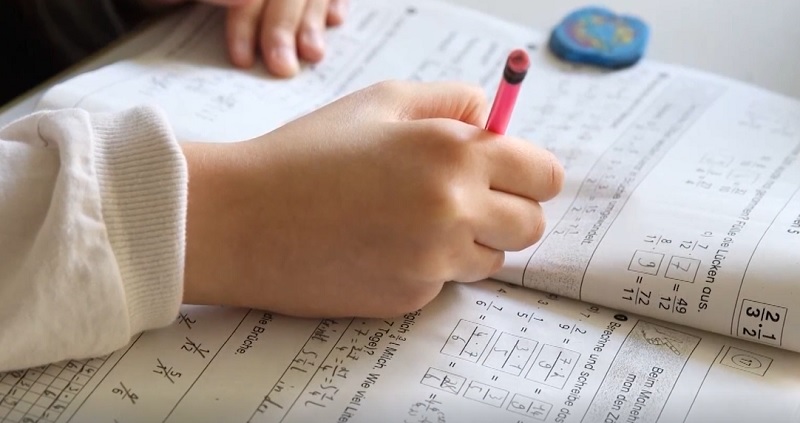SIOUX FALLS, S.D. (KELO) – Some parents in the state are concerned after South Dakota joined a Texas lawsuit that could get rid of disability accommodations in schools.
The lawsuit from Texas is in retaliation to the Biden Administration adding gender dysphoria to the list of disabilities. Part of the lawsuit calls for the courts to declare Section 504 of the Rehabilitation Act of 1973 unconstitutional.
Section 504 requires organizations that receive federal funding–like a public school– to recognize and implement accommodations for students with disabilities.
SD native deals with loss of federal job
“If a child has ADHD, they might have accommodations like extra time for a test or a separate setting for a test,” Sarah Fischer said. “I have two kids that have a severe allergy to eggs. The 504 makes sure that everybody that works with them knows that they have EpiPens.”
Parents of students who need accommodations are worried that the lack of distinction between gender related language in the lawsuit and Section 504 as a whole could mean the entire section gets repealed.
Attorney General Marty Jackley clarified in a news release February 14 that students with disabilities would still get the accommodations they need and the lawsuit is only aimed at removing gender dysphoria from the list of disabilities.
“This lawsuit only centers on whether the Biden Administration’s listing of gender dysphoria is appropriate and not on the entire Section 504,” Attorney General Jackley said in the release on Friday. “Disabled students will continue to receive the services they were provided before the lawsuit was filed.”
However, parents weren’t convinced and are still worried about Section 504 being repealed. Jennifer Savage, a mom from Lennox whose freshman son has autism and utilizes a 504 plan, pointed to Item D in the lawsuit’s “Demand for Relief” section which requests the courts “declare Section 504, 29 U.S.C. § 794, unconstitutional.”
“Even though they’re giving that reassurance, until I see it in black and white in the lawsuit that goes in front of the judge, I’m gonna keep fighting for my kiddo,” Savage said.
Courtney Ehlers had two children formerly on 504 plans and currently advocates for other students who may need accommodations. She is worried that the language in the lawsuit, especially the line that declares Section 504 unconstitutional, doesn’t reflect the intent of the lawsuit and would impact more than just people who are transgender.
“Is it really necessary to risk all South Dakotans who this applies to and all conditions if we really are concerned about one topic,” Ehlers questioned.
She added that if Section 504 was removed, then schools would no longer be required to accommodate students and follow their 504 plans, putting students with disabilities at a risk of losing services and losing consistency of care across the state.
“The reality is that we’re gonna lose equity across different school districts,” Ehlers explained. “If the Sioux Falls School District can still accommodate those plans, great, but what if the Watertown School District can’t or the Grant-Duell School District can’t?”
Although school districts may implement their own policies to ensure students receive accommodations, without federal funding and support, “there’s no guarantee that anybody’s going to do that,” Fischer said.
KELOLAND News reached out to the Attorney General’s office on Monday to get further clarification on the language of the lawsuit and who it will target. Jackley’s statement is below:
“This lawsuit will not render all of Section 504 unconstitutional nor will it cause parents of disabled children to lose needed funding,” the statement said. “It is unfortunate that some organizations have further created parental fears of losing funding for all disabilities which is not intended and is being further made clear in the litigation by Texas. To force men into women’s bathrooms and locker rooms under the guise of disabilities and to divert funds from their needed and intended purpose is inappropriate and is being ended by both this litigation and President Trump‘s January 20 executive order.”
Both Fischer and Savage hope South Dakota withdraws from the lawsuit, at least until the language of the lawsuit is amended to match the plaintiff’s intent.



